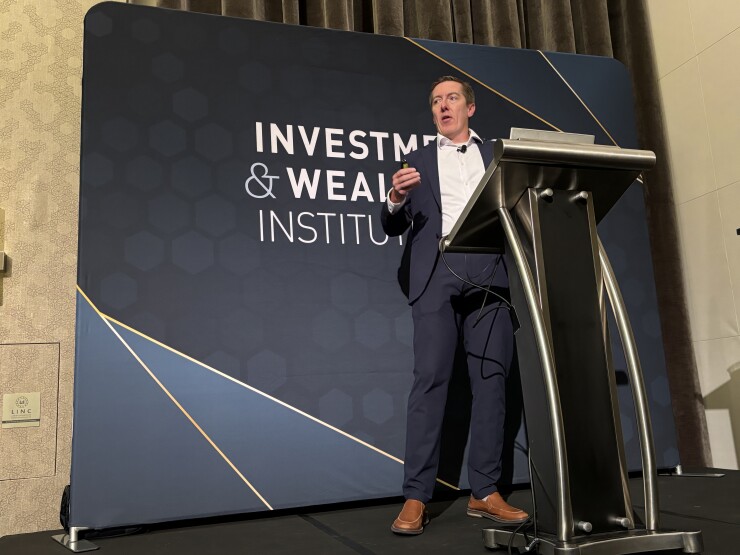Financial advisors should set up meetings with clients early and regularly to discuss their estate plans — even if they're not tax specialists who are capable of predicting the future, experts said.
The looming expiration of many provisions
Planning for the estate transition well ahead of any deaths in the family can help avoid tension around which heir will receive assets or heirlooms such as china or jewelry, said Yonhee Choi Gordon, a principal, chief marketing officer and co-chief operating officer with Downers Grove, Illinois-based registered investment advisory firm
"I really encourage a family meeting where we would go through all of the assets so that the children know what will happen," she said. "At the end of the day, the clients are very grateful that they had that discussion. They're at peace and the children all know, so that when something does happen, it's a very smooth transition as far as helping in the administration. So I would suggest trying to do as much as you can on the front end."
READ MORE:
Advisors who aren't as familiar with how "to give really nuanced feedback or come up with complicated structures" can still lead those meetings, according to Richard Lowry, the managing director of wealth strategy with Chicago-based RIA firm
However, that process begins with "information and data gathering," so if advisors don't have that, it can be "really hard to add value," he said.
"One of the most impactful, low-hanging fruit things that our advisors find to do is beneficiary reviews, because planning often falls down because there wasn't a follow-up and transferring the asset, or getting divorced and forgetting about that retirement account that still goes to your ex-spouse," Lowry said. "As a financial advisor, simply by doing due diligence, you don't have to have a lot of special knowledge, but just by gathering the documents, reviewing them, and presenting it to your client and saying, 'Are these who you're planning on benefiting and in these amounts?' can so often catch things that are really meaningful and make not only the estate settlement process easier, but really give you a lot of rapport with your clients."
The deadline at the end of 2025 for many parts of the Tax Cuts and Jobs Act could provide other fruitful areas of discussions with clients, said Meg Hudgins, a wealth and estate planning strategist who is the executive director of Morgan Stanley's
"A lot of clients are coming to financial advisors and asking them, 'should I do anything?'" Hudgins said. "But it's also a great opportunity to proactively reach out to your clients and just open up that conversation when there's a big potential change to estate tax legislation."
READ MORE:
Working with certified public accountants and estate or tax lawyers in advance could give clients an advantage in getting a meeting closer to the possible sunset date when there may be more information about the fate of the current rules.
While many advisors wonder whether those referral relationships will send clients their way from the professionals in the related but often separate fields, one recently spoke with Jeffrey Brooks, a senior wealth strategist with the Specialist Consulting Group at asset management firm
"She wanted to develop a good relationship with some trust and estate lawyers because she knew all of her clients were going to wait until November or December of next year before they decided to do some planning for the sunset of the Tax Cuts and Jobs Act," Brooks said. "She wanted to make sure that she had a good relationship so she could bump her clients up in line."

The high existing floor under today's guidelines for estates — upwards of $28 million for couples before they're subject to taxes — could ultimately shift to half that amount and bring far more clients "into that dangerous territory" within a couple of years, noted Griffin Bridgers, a member with the
"It's easy to look at those numbers and think, 'OK, well, maybe we can just give away a ton of money up to $28 million and we'll be fine. But that's not the case. The pressure out there is forcing families to give away more than they possibly can afford to give away," Bridgers said. "Maybe the client is on board, but what we're now dealing with is exactly how much are we going to give away or can we afford to give away?"






